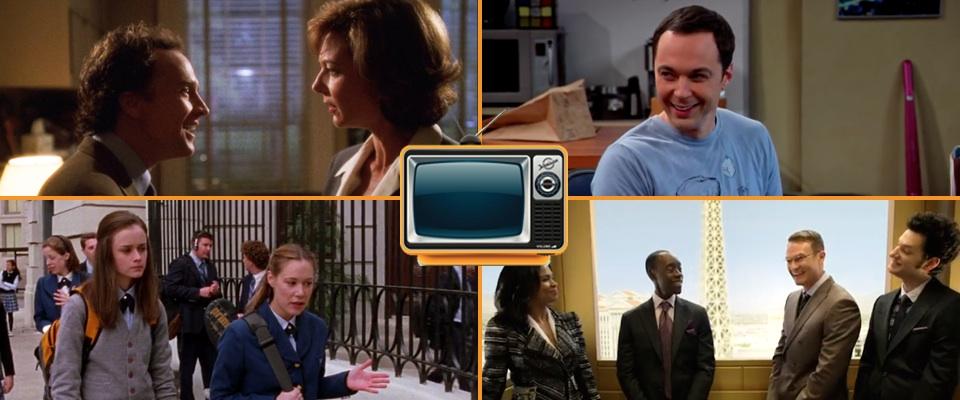Math rock fans of the 1990s will remember A Minor Forest, the trio of Bay Area musicians renowned for their aggressive, rhythmically technical style of playing and intense live shows. (Not to mention imaginatively crass song titles like “No One Likes an Old Baby” and “Jacking Off George Lucas.”)
This week, the trio will reunite again for what they say will be a very special performance July 25 at the Berkeley Art Museum and Pacific Film Archive. The band reunited for the first time in 15 years last November at Bottom of the Hill in San Francisco, kicking off an ambitious nationwide tour. This spring, Thrill Jockey Records reissued the band’s first two albums, 1996’s Flemish Altruism and 1998’s Inindependence.
As for what makes the BAM performance so special—two of A Minor Forest’s members, bassist John Trevor Benson and guitarist/vocalist Erik Hoversten were studying music at UC Berkeley in the 1990s when they formed the band with drummer/vocalist Andee Connors. Their alma mater, they say, had a profound influence on the trio’s sound.
Hoversten attributes both his development as a musician and his understanding of the breadth of music possibility to attending Cal and studying music. What he learned in class, he then directly applied to A Minor Forest.
“I would take a course on West African percussion and figure out how to incorporate polyrhythms into a song we were writing,” he says. “I studied Gamelan and tried to figure out how we could do a song that involved syncopation.”
Benson concurred. “We spent hours and hours working out how to play a twenty piece Gamelan section with a guitar and a bass. It was a crazy back and forth, but we worked it out, and we played it,” he says. In addition to performing in rock bands, Benson played clarinet in the Department of Music’s Symphony Orchestra. (“But only like fifth string.”)
“We had to re-embody earlier versions of ourselves. It was hard for me to intuitively understand why I did something when I was 22, musically,” Hoversten says.
While Hoversten was still a student (and before they had even put out any albums), the trio began touring extensively. “It was an era when there were a lot of barriers to entry in the business. If you wanted to get out there, you pretty much had to do it yourself,” Hoversten explains. “Nowadays, you can simply put your music up on Bandcamp.com, but back then, the way to really do it—if you were going to go for it—was to tour.” In that way, he says, their reunion tour had a distinctively “high school reunion element” to it.
Because of their precise, algorithmic style of songwriting, preparing for their reunion tour took weeks and weeks of relearning the material independently and practicing together.
“The music is complicated enough that we couldn’t just get together for a long weekend and remember everything, or fake it,” Hoversten says. Initially, revisiting their old material was challenging and felt unnatural. “We had to re-embody earlier versions of ourselves. It was hard for me to intuitively understand why I did something when I was 22, musically.” But eventually, after performing together again, Hoversten says that playing their songs felt less and less like stepping back in time, because he was able to re-internalize the music in a modern way.
Their reunion has been such a success that they want to record another album together. But figuring out how to do that, exactly, is problematic.
“The way we made our music before was really, really labor-intensive. Given that we don’t all live in the same city, we can’t really do that kind of wood shedding regularly,” Hoversten explains. For the time being, they’re talking and thinking about how to make it work. “It’s going to require some experimentation, but it’s something we would all like to do.”
After A Minor Forest went on hiatus in the late 1990s, each member continued to pursue a career in music. Benson went on to play in the band Creepy Crawly Claw and released a solo album in 2013. He is also the creator of the Larry Bus, a vegetable-oil-powered mobile concert venue. Hoversten earned a master’s degree in music from UC San Diego and began performing in the commercially successful indie rock band Pinback. Connors founded his own record label, Tumult, and is now the co-owner of Aquarius Records in San Francisco, in addition to performing in bands such as Lumen and Imperils.
The July 25 BAM/PFA performance is part of the museum’s L@TE Friday Night series programmed by guest curators, and will open with Mansion, a staple of the underground warehouse circuit in Oakland. Current programmer George Chen is a musician, comedian, record-label founder and writer who used to book shows on the Berkeley campus in the 1990s. In an email, Chen writes: “My feeling was that this was a genre that was not represented by the L@TE series,” and he invited A Minor Forest to perform as part of the series because of the musicians’ Berkeley connections and appreciation of acoustics and sound art.




















